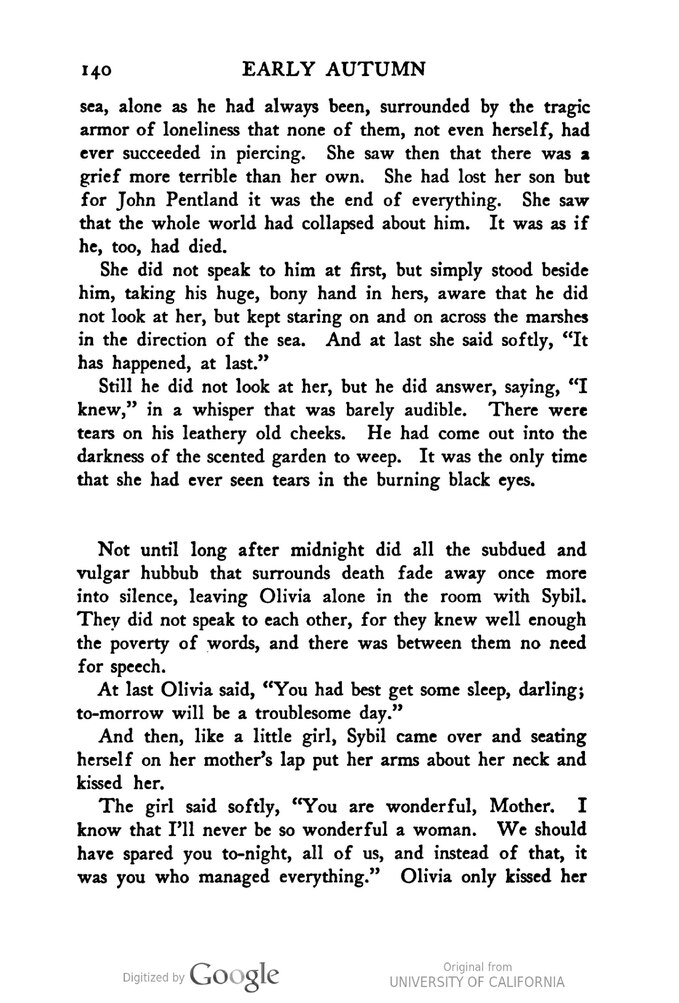sea, alone as he had always been, surrounded by the tragic armor of loneliness that none of them, not even herself, had ever succeeded in piercing. She saw then that there was a grief more terrible than her own. She had lost her son but for John Pentland it was the end of everything. She saw that the whole world had collapsed about him. It was as if he, too, had died.
She did not speak to him at first, but simply stood beside him, taking his huge, bony hand in hers, aware that he did not look at her, but kept staring on and on across the marshes in the direction of the sea. And at last she said softly, "It has happened, at last."
Still he did not look at her, but he did answer, saying, "I knew," in a whisper that was barely audible. There were tears on his leathery old cheeks. He had come out into the darkness of the scented garden to weep. It was the only time that she had ever seen tears in the burning black eyes.
Not until long after midnight did all the subdued and vulgar hubbub that surrounds death fade away once more into silence, leaving Olivia alone in the room with Sybil. They did not speak to each other, for they knew well enough the poverty of words, and there was between them no need for speech.
At last Olivia said, "You had best get some sleep, darling; to-morrow will be a troublesome day."
And then, like a little girl, Sybil came over and seating herself on her mother's lap put her arms about her neck and kissed her.
The girl said softly, "You are wonderful, Mother. I know that I'll never be so wonderful a woman. We should have spared you to-night, all of us, and instead of that, it was you who managed everything." Olivia only kissed her
